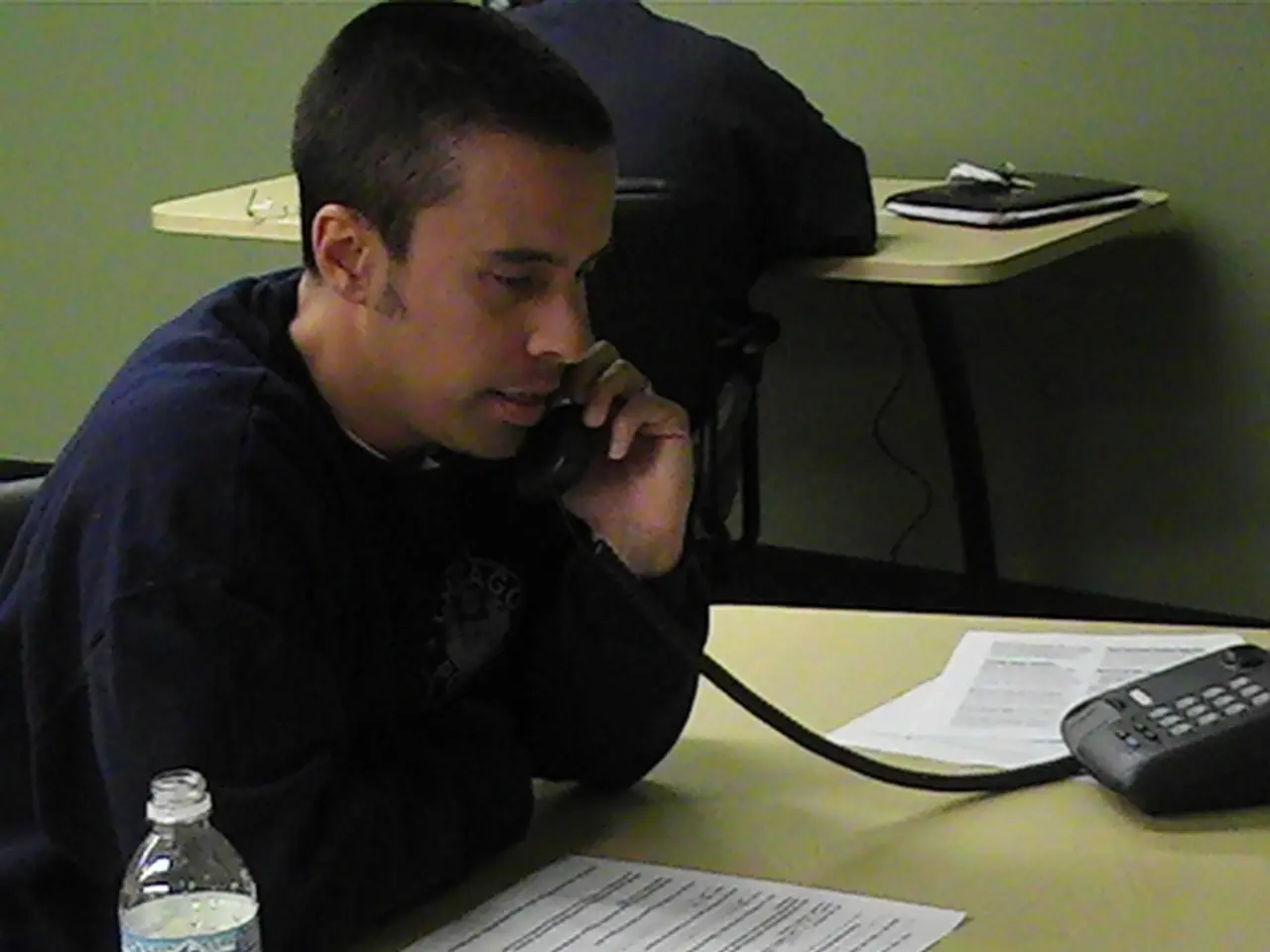Need for leaders to engage in telephone conversations
In the modern world of business, effective phone communication is crucial for leaders. Vera Radnitz, a communication trainer based in Bad Schönborn near Karlsruhe, emphasizes the importance of clear, confident, and empathetic verbal interaction.
Effective strategies for leaders to improve phone communication skills include practicing clear and concise messaging, speaking confidently and calmly, actively listening with focused attention, minimizing distractions, and summarizing key points to ensure mutual understanding.
Clarity is key in phone communication. Using simple, direct language without ambiguity and organizing messages logically helps to avoid misunderstandings that are common in phone conversations. Speaking firmly but respectfully, demonstrating calm assurance, builds trust and maintains confidence, especially when visual cues are missing on the phone.
Active listening involves focusing deeply on the speaker without interruptions. Minimizing distractions, such as silencing phones or finding quiet spaces, and using verbal encouragers like "I see" or "mhm" are essential to convey attentiveness. At the end of a call, summarizing key points briefly helps to confirm shared understanding and avoid miscommunication.
Adaptive listening goes beyond passively hearing words; it involves interpreting and responding appropriately to needs underlying the message, which is critical for effective leadership communication by phone. Engagement encourages dialogue by asking clarifying questions, showing genuine interest, and maintaining an upbeat, positive tone to foster productive phone interactions.
Attitude, body language, and voice are crucial in effective phone communication in addition to technique. Smiling while speaking can boost one's mood and make a positive impression on the listener. Consciously limiting conversation time and preparing important points can improve the chances of reaching and persuading the counterpart.
Vera Radnitz advises leaders to communicate confidently on the phone as it motivates their team to do the same. In difficult situations, Elke Klöfer, a telephone expert, recommends remaining professional, ending conversations objectively and constructively, and using rhetorical pauses to structure thoughts and prevent overwhelming the conversation partner.
Voice training, offered both in-person and online, can improve conditions for successful phone calls by working on breathing technique, articulation, resonance, and body language. Role-plays, feedback exercises, or individual coaching can help improve phone communication skills. The cost for individual voice training sessions typically ranges from 100 to 160 euros.
Regularly reflecting on one's behavior on the phone, using conversation protocols or audio recordings, helps to identify personal patterns and work on improving impact. Lack of preparation, lack of goal orientation, and unclear body language can negatively impact phone calls.
Four out of ten professionals in Germany postpone or avoid making calls due to insecurity, unpleasant content, or discomfort in direct conversation. Professional communication skills can lead to increased confidence, credibility, and conviction during phone calls.
To stay updated on articles like this, a Staatsanzeiger subscription is required.
Read also:
- Trade Disputes Escalate: Trump Imposes Tariffs, India Retaliates; threatened boycott ranges from McDonald's, Coca-Cola to iPhones
- Li Auto faces scrutiny after crash test involving i8 model and a truck manufacturer sparks controversy
- Celebrated Title: Cheesemakers Blessed Upon
- Construction and renovation projects in Cham county granted €24.8 million focus on energy efficiency








